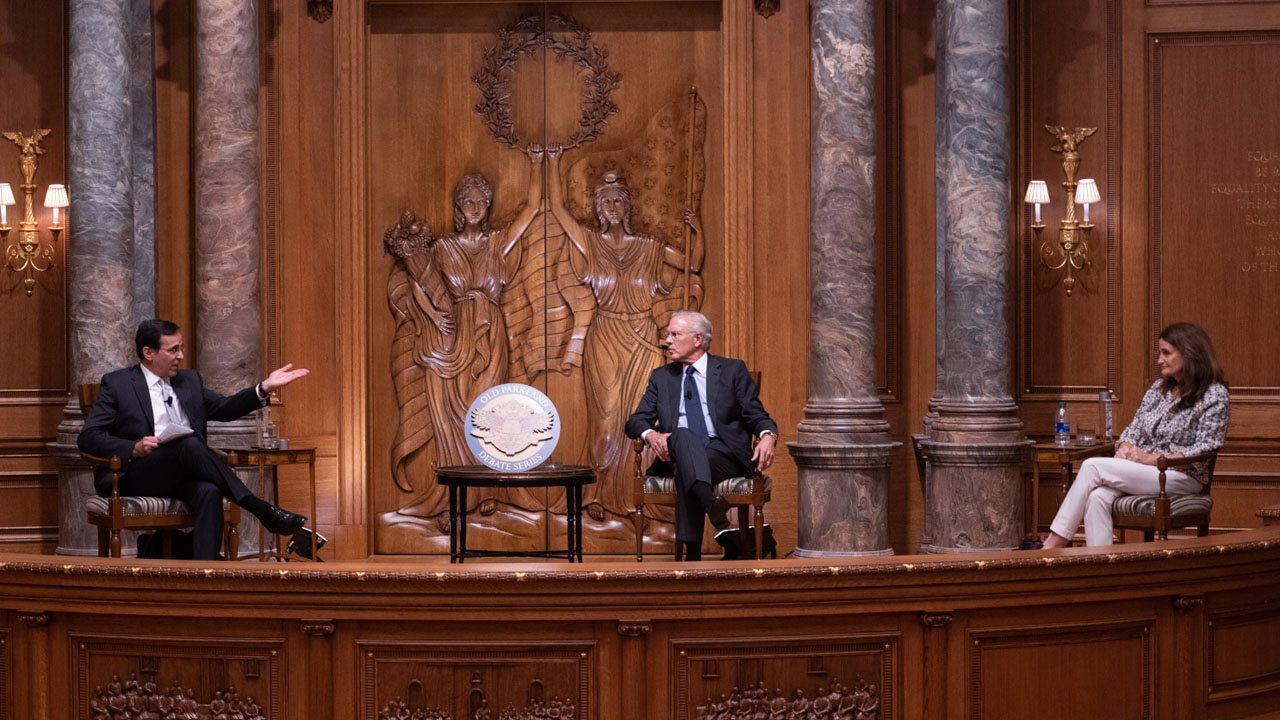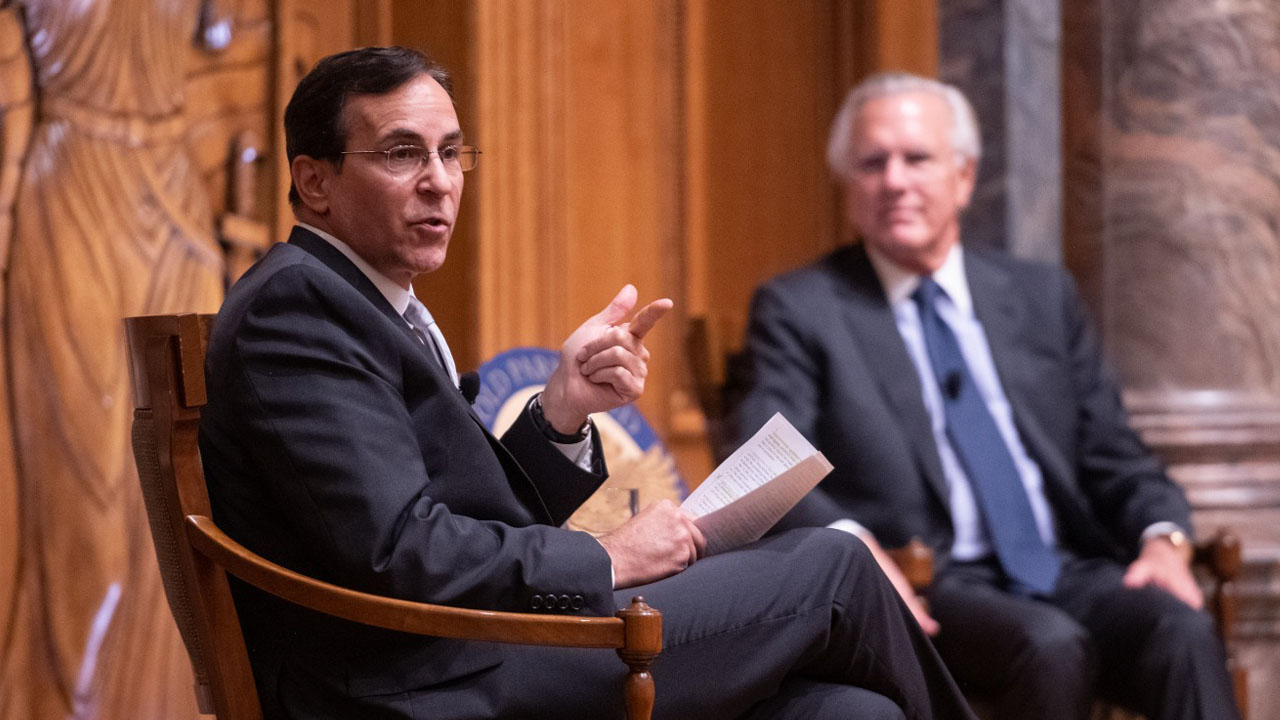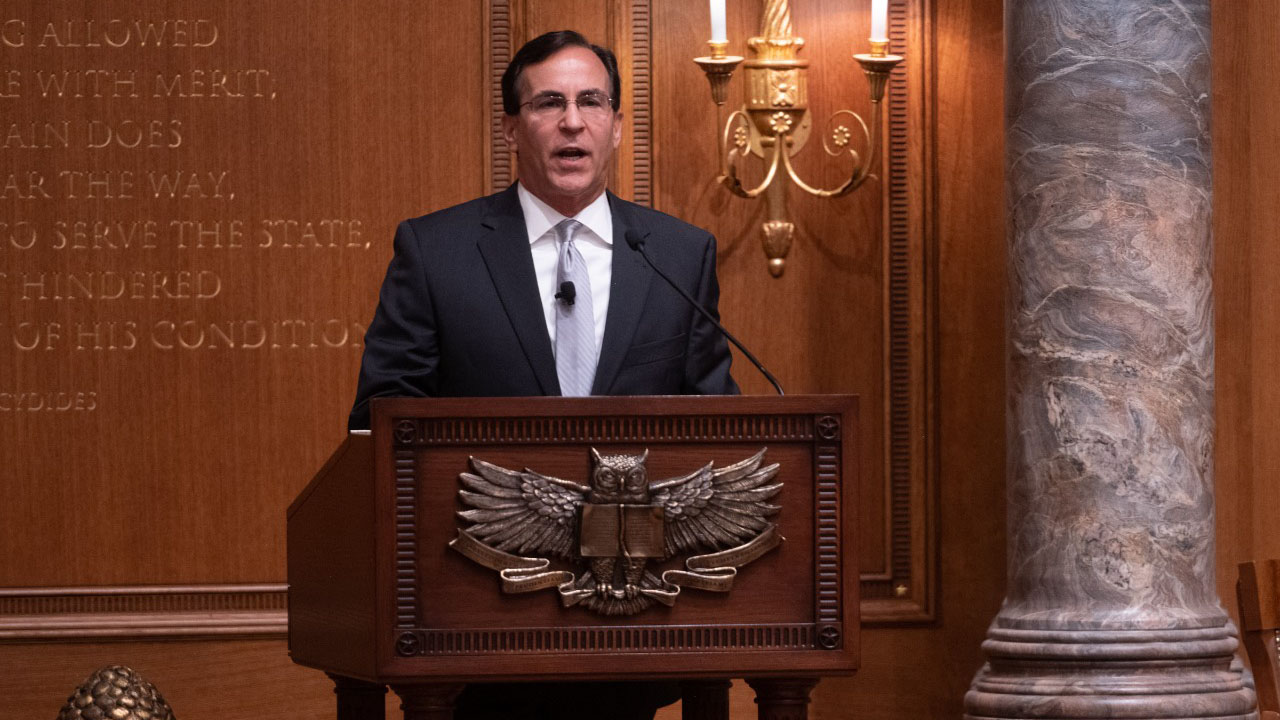About | Bio
His valuable insight, analysis and strategic direction have been vital to many of the world's largest corporations, trade associations and universities preparing for the business, economic and political challenges ahead.
John’s views have appeared in The Wall Street Journal, New York Times, Chicago Tribune, Bloomberg, NPR, Newsday, Houston Chronicle, Denver Post, and other publications in China, Singapore, Mexico, Canada, Korea, Japan, and the Middle East.
His books include Global America: Understanding Global and Economic Trends and How To Ensure Competitiveness, Grasping Globalization: It's Impact and Your Corporate Response, and Mexico and NAFTA: The Real Impact, among others.
Additionally, he is Chair of the Upstate New York District Export Council, a position appointed by the U.S. Secretary of Commerce, former Executive Director of goTRADE New York, an advocacy coalition sponsored by the Washington, D.C.-based Business Roundtable, and former President and CEO of World Trade Center BN.
FEATURED VIDEOS | JOHN MANZELLA
Latest Articles From John Manzella
World | Tuesday, July 04, 2023
 It’s no coincidence that democratic countries with capitalist systems typically have the highest quality of life, standard of living, economic productivity per capita, life expectancy and educational standards. Democratic systems also tend to have the lowest levels of corruption. In many countries, however, democracy is currently being challenged, which may have the potential to bring about harsh consequences. Democratic backsliding could, in turn, cripple our capitalist systems and reduce our standards of living. read more...
It’s no coincidence that democratic countries with capitalist systems typically have the highest quality of life, standard of living, economic productivity per capita, life expectancy and educational standards. Democratic systems also tend to have the lowest levels of corruption. In many countries, however, democracy is currently being challenged, which may have the potential to bring about harsh consequences. Democratic backsliding could, in turn, cripple our capitalist systems and reduce our standards of living. read more...
Economy | Saturday, November 26, 2022
 The key to U.S. economic growth and job creation lies in our ability to innovate new products and services and deliver them to the world’s nearly 8 billion consumers. This requires tax policies that incentivize entrepreneurs to take risks and pro-globalization legislation that secures access to foreign markets.
The key to U.S. economic growth and job creation lies in our ability to innovate new products and services and deliver them to the world’s nearly 8 billion consumers. This requires tax policies that incentivize entrepreneurs to take risks and pro-globalization legislation that secures access to foreign markets.
U.S. | Saturday, September 10, 2022
 Today’s most critical challenges are impacting every American. These include the direction of globalization and Chinese relations, shifting demographics and labor shortages, and rising inequality and threats to American capitalism. Understanding these challenges, the risks they pose, and how to adapt will be necessary to survive and thrive in the years ahead.
Today’s most critical challenges are impacting every American. These include the direction of globalization and Chinese relations, shifting demographics and labor shortages, and rising inequality and threats to American capitalism. Understanding these challenges, the risks they pose, and how to adapt will be necessary to survive and thrive in the years ahead.
Trade & Finance | Monday, May 09, 2022
 There are several critical issues facing the United States today. These include the labor shortage and skills deficit, the disruption of supply chains, the new direction of globalization, fear of new Covid variants, and inflation, which is made worse by all these issues. In addition, there are many serious concerns caused by the Russia-Ukraine war and the fallout of China continuing to support Russia.
There are several critical issues facing the United States today. These include the labor shortage and skills deficit, the disruption of supply chains, the new direction of globalization, fear of new Covid variants, and inflation, which is made worse by all these issues. In addition, there are many serious concerns caused by the Russia-Ukraine war and the fallout of China continuing to support Russia.
This invaluable program analyzes economic trends, examines trading relationships, reveals Chinese dangers, and explores critical issues involving labor, skills, automation, and immigration. Additionally, it offers survival strategies and provides insight on what's ahead.
[ADDITIONAL DETAILS]
This popular program covers—if desired—four important areas that impact each other: (1) Macroeconomics: GDP forecast, long term economic risks, factors impacting growth and inflation, energy, housing, global GDP, and country forecasts, etc. (2) Labor: unemployment forecasts, shifting demographics, worsening labor shortages, falling participation levels and reasons, strategies to attract and retain labor, automation, immigration, etc. (3) Trade and globalization: the direction of globalization, impact on industry and workers, USMCA, Europe and Brexit, emphasis on China’s direction, decoupling prospects, Chinese risks and challenges, etc. (4) Capitalism is being threatened: The need to maintain reasonable tax rates is necessary in order to incentivize entrepreneurs to take risk, while generating enough revenue to help stabilize or prevent the continued erosion of the U.S. middle class (similar situation around the globe). As the middle class erodes, voters tend to support populists on the far right and left. In both cases, capitalism is at risk.










